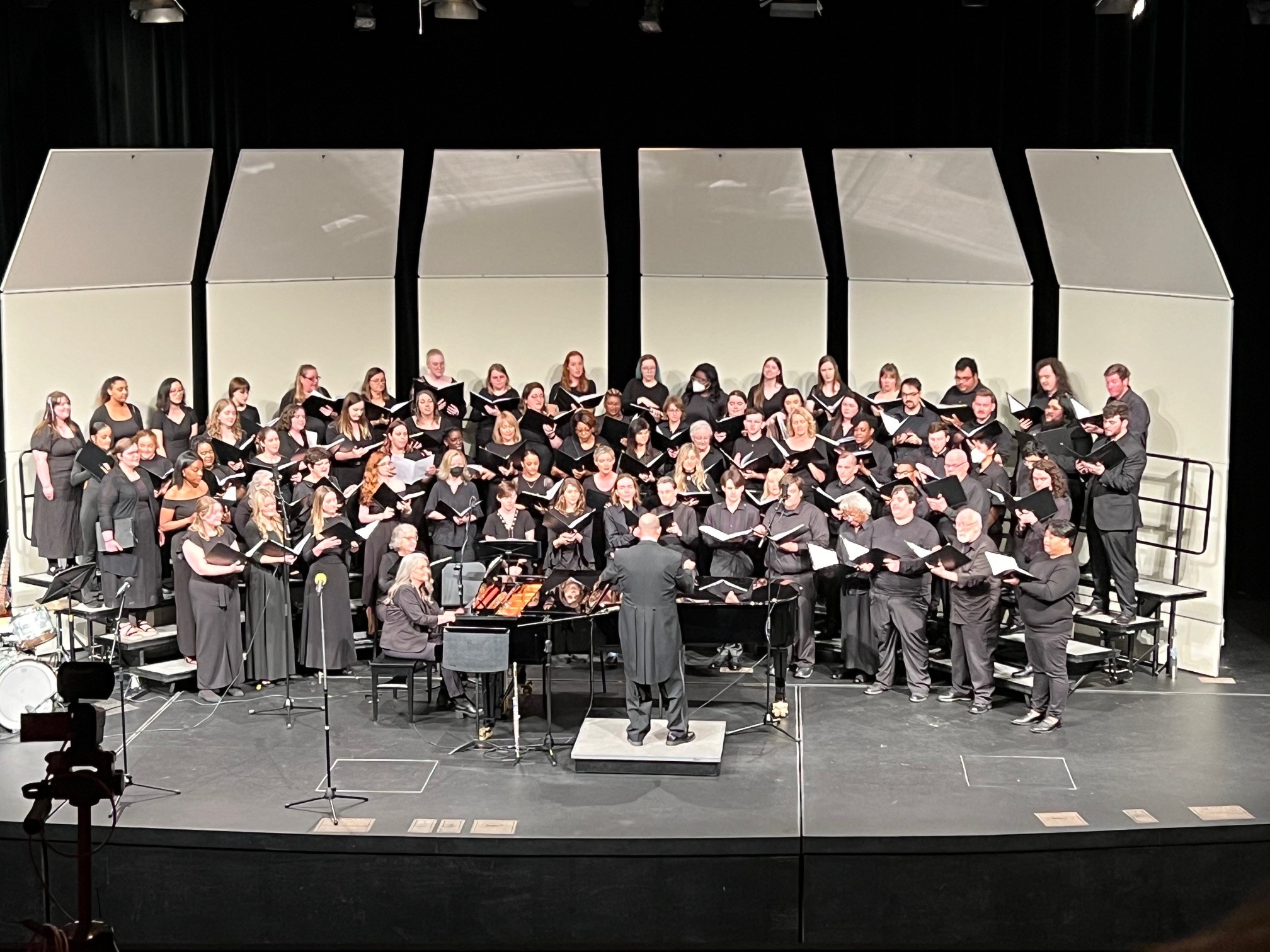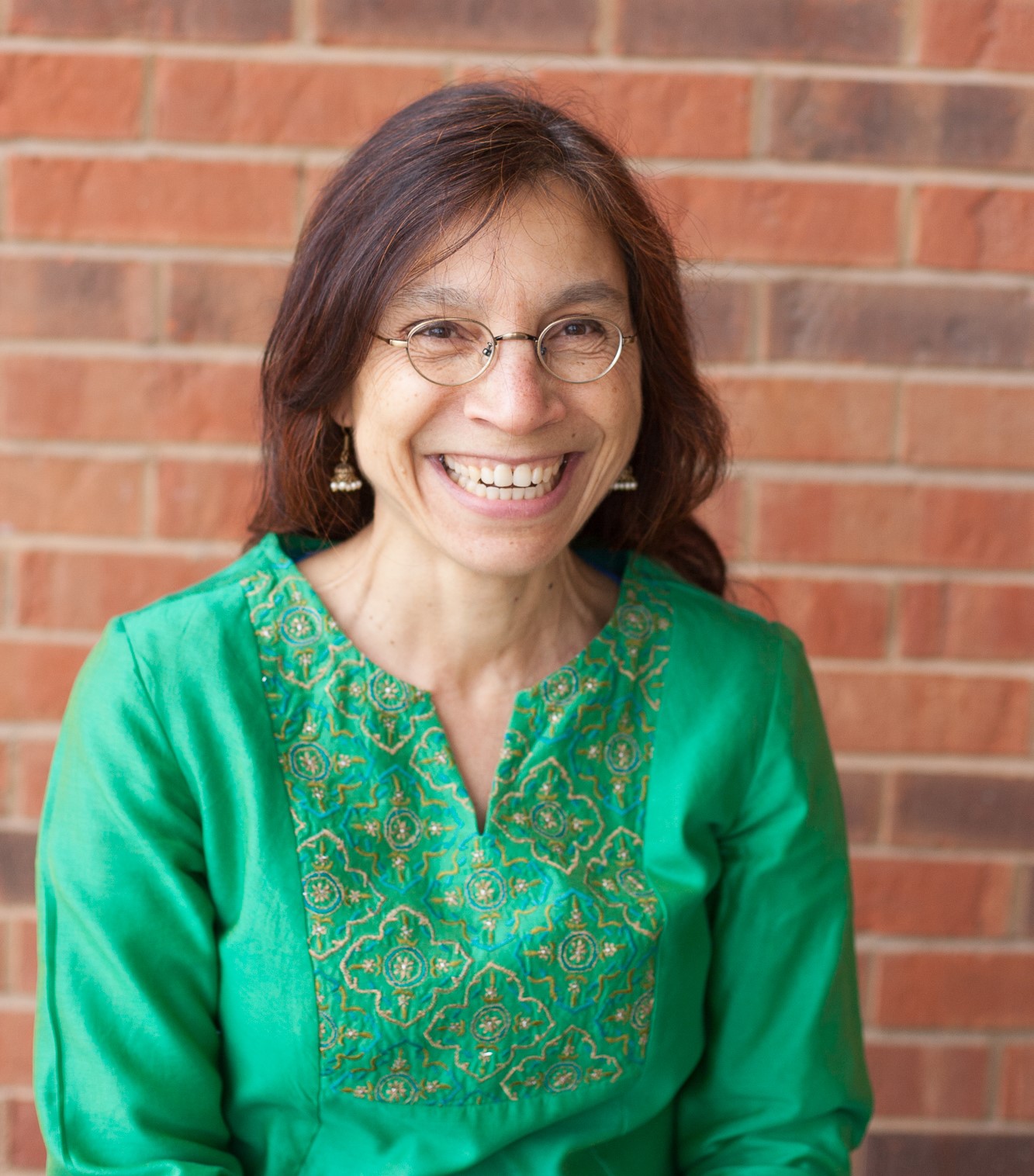From the canopy to the classroom.
By: DeeAnn Neely, Guest Contributor
Equipped with neutral colored walls, wooden desks, black computers, and a couple wall mounted shelves – Science South Room 116 looks like most of the offices of the staff at St. Louis Community College at Meramec. Family photos and a few knick knacks adorn the desk adding a personal touch to the space. On the shelf? Several books (of course), a beautiful piece of coral, a pair of red fur lined handcuffs, and a black riding crop hanging from the L-bracket supporting the shelf.

This is the office of reproductive physiologist, Dr. Jody Martin-Atkins. The petite blond with a soft soothing voice, dressed in a rosy pink sweater set, and colorful floral skirt is probably the last person most would think to be the highly sought after and unconventional professor of The Biology of Human Sex. As she relaxes into her office chair and crosses her legs, revealing a bulky boot on her foot she calmly said, “I always tell my students kind of on the first day, if you want a traditional professor, don’t take my class.”
She said she was sought out specifically for her knowledge, extensive research, and field experience in reproductive systems. “They hired me specifically to teach the sex course here,” Jody said in a matter of fact tone as she swings back and forth in her chair and recounts her journey to teaching at Meramec.
“I went to school at St. Louis University given my emphasis in reproduction by working at the St. Louis Zoo. It was the technique of knowing about reproductive systems that caught the eye of St. Louis Community College,” she said. Though interestingly enough, teaching was not a part of her planned career path, even after her parents saw the traits early on.
“I come from a long line of teachers…they would say, ‘Oh, you’re going to grow up to be a teacher.’ And I thought You’re kidding me, I’m not going to do that…please,” she lightly chuckles as she rolls her eyes.
Her passion for research and science continues. “I still have my foot in the door with research,” she said while chuckling at the irony of her foot currently being in a boot, raising her leg for emphasis. “Because I can’t seem to let that go,” she said wistfully.
Her love of animals is evident as she runs down her various research experiences. “I worked with exotic species; I actually worked with two different species of snakes.The Brazilian Rainbow Boa and the Ball Python, then I branched out and started working with the cheetahs and doing artificial insemination. I worked with a lot of different species at the zoo,” she said. “I still climb up to the top of the rainforest trees and work with the parrots and work with the frogs,” she said while reminiscing of her time in Puerto Rico studying reproductive behaviors of those animals in their natural habitats.
“I’ve done like underwater research on shipwrecks and I still do a lot of diving in the oceans,” she said as she completes the list of memorable research assignments. “I have been in the process of cultivation plants for a vineyard. I’ve been working on that throughout the summertime,” she said of the current project that helps her get her research fix.
After an adventure of five lifetimes, Martin-Atkins chose St. Louis University to complete her master’s degree, which opened an opportunity that she said she could have never predicted, teaching.
“I had NO interview skills at all. I had never interviewed for any position in my life. Any job I would do, I would volunteer first, then I would make myself indispensable in that job,” she said. “I’m one week from graduating with my Ph.D., I’ve been offered two jobs, I’m standing there thinking, ‘Do I want to do research or do I want to teach?” she said exasperatedly thinking back to the difficult decision.
“I decided, ’Well I liked Meramec.’ When I came onto campus like three students stopped and were like “oh you look lost let me help you,’ and I thought ‘Well that was nice!’ Honest to God my decision was I’m going to take it for one year. One year only, that’s it, and I’m out,” she said decidedly with a cutting of her hand.
Little did she know that Meramec was a perfect fit. “It was fabulous; the students are what drove me to want to teach a second year. After year two, year three, I thought I’m going to definitely quit after this, I just know it. Each year I keep saying ‘this is it’ and it’s the students that keep reinforcing that maybe I should keep staying,” she said.
Her passion for biology and relationship with her students helped solidify her place as a staple in the science department. “The doors opened up. I was able to have academic autonomy…I could teach whatever I wanted. I opened a class in tropical biology, so I got back to my Puerto Rican roots. I was able to take students to Belize, and had them swimming with sharks, and swimming with manatees,” she said in wonderment as she recollected the impact of those trips. “I opened up the ocean to these students who literally lived landlocked here. I got them to an island off the coast of the Bahamas,” she said in almost disbelief.
She recognizes that her approach to teaching is different. “I’m a professor that steps outside the box. I invite students to ask questions. I invite students to challenge me. I don’t teach from notes; I teach off the top of my head. I want students to interact with me. If a student asks a question, take me off on a tangent, that’s fantastic. That’s what I’m there for,” she said.
Expectedly, talking about sex in any dynamic tends to be uncomfortable and a bit taboo. Martin-Atkins doesn’t let that deter her. “She instantly became my favorite teacher,” student DeMarco Barnett said after taking his first Biology of Human Sex class. “She perfected her teaching method for that class, tackling an uncomfortable subject,” Barnett said.
Martin-Atkins gives insight to her teaching method when she reveals, “I think humor is a huge part of making that topic approachable. I always try to make things a twist on it as funny,” she laughs. “I try to do it in a way in which it’s not just out there and in their face; it’s coming in for lack of a better word a back-door method,” she said with a mischievous grin and a wink. She also tries to assign interactive assignments in her lecture, such as an origami of a vulva the students fold and label. “It’s nonconventional,” she shrugs.
When she’s not enlightening students on things like when in history a vibrator first appeared, Martin-Atkins runs marathons for cancer up and down the eastern seaboard with her husband. “We just go to the east coast because that’s where the lobster is,” she said with a wide grin.
How did she end up with a boot? “We ran two marathons back to back and were then starting to train for our third which that’s when I got my stress fracture,” she said. Running is a favorite pastime for the couple and usually the way they spend date night. “We love to run, we run throughout the winter time. We run at night when the snow’s falling; it’s so peaceful,” she said.
Also, on her busy agenda is to complete a children’s book and revamp her classes. “I have been working on some of my lectures and some of the things I do…I’ve been redesigning it with a 50 min lecture and a 2-hour block where we do a hands-on activity,” she said. “All hands-on activities and a section of that I’m trying to re-work and do all for accessible students who are visually impaired, hearing impaired, or have any type of impairment to make it in some way accessible.”
Although teaching may have not been part of the plan from the beginning, it is an essential part of her life now. “I’m teaching these students about things that they never would have been able to understand before,” she said.











